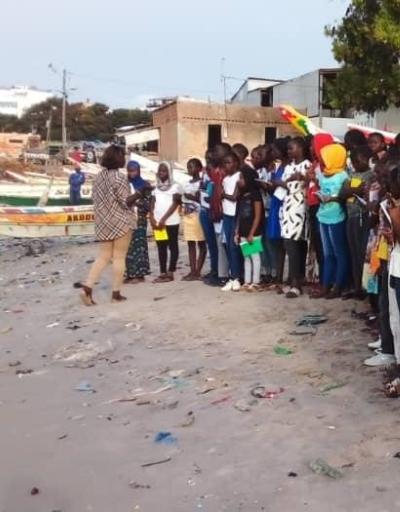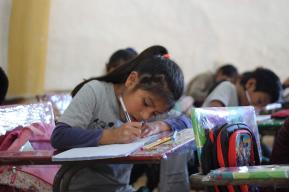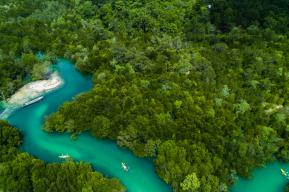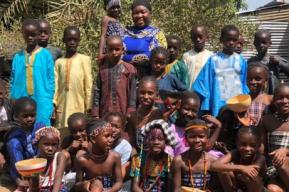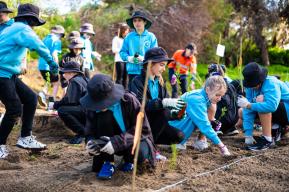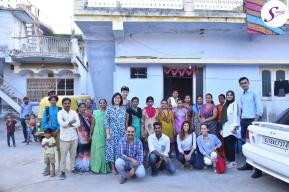Today, the coastal and marine biodiversity of Senegal is endangered by plastic waste. In this country, where fishing is one of the main sources of income, pollution is seriously affecting coastal areas, especially those of the Cape Verde peninsula. Plastic waste pollution is therefore a major environmental protection issue in the country. Despite the adoption of a law in 2020 banning the use of disposable and single-use plastics, only 9,000 tons of waste are reprocessed out of the 20,000 produced each year. The remaining untreated plastic waste threatens the survival of Senegal's wildlife and maritime cultural heritage. Plastic pollution also contributes to the insalubrity and depletion of natural resources of the coastline.
If the ocean is in danger, it is nevertheless the regulator of our climate and our biodiversity and plays an essential role in the survival of humanity. It is also our natural museum which shelters a maritime, tangible and intangible heritage that it is important to preserve and protect. The oceans have always been a source of life, history and development. That is why, for several years, authorities, organizations and civil society have been looking for solutions and ways to improve the situation. Local initiatives to clean up the coastline and raise awareness among the population have been put in place.
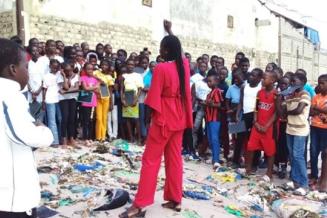
To combat the ever-increasing dangers of the climate crisis, local communities have continued to involve students and youth in activities to protect Senegal's biodiversity. To support and complement these existing activities, UNESCO's Regional Office in Dakar launched a field initiative in 2021 aimed at raising environmental awareness around ocean protection and to promote marine cultural heritage among Senegalese coastal populations. These activities have targeted public schools and fishing communities in the Dakar region.
Recently, digital awareness campaigns were conducted on World Ocean Day - June 8, 2021. At the same time, educational and awareness-raising activities on the protection of the marine environment and the promotion of maritime heritage in the Dakar peninsula were organized during the months of September and November 2021. Awareness posters "The sea is not a trash can" were distributed to coastal populations; discussion groups were organized with wharf managers, fishermen, fishmongers as well as women who are active in the sale of fish products; exhibitions on the composition of Senegalese maritime heritage and artistic production workshops were organized in schools to facilitate the understanding of the concepts of underwater cultural heritage and marine pollution; finally the awareness campaign was widely disseminated on social networks. This field initiative was conducted jointly by the Culture and Education Sectors of the UNESCO Dakar Office and is in line with the 2001 UNESCO Convention on the Protection of the Underwater Cultural Heritage, ratified by Senegal in 2020.
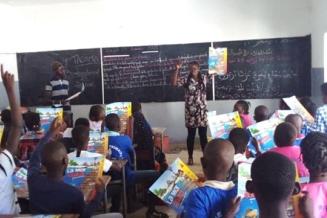
ESD starts early
Because today's children are tomorrow's adults, education has a central role to play in addressing our contemporary challenges. "The sea is not a trash can" was motivated by this idea and uses education as a lever for action to raise awareness among young people and local communities on the importance of protecting marine biodiversity and underwater heritage. Education for Sustainable Development (ESD) is therefore at the heart of this field campaign. ESD aims to provide learners of all ages with the knowledge, skills, values and power to address interconnected global challenges such as climate change, biodiversity loss, underwater disturbance, unsustainable resource use and inequality.
In total, at least 15,000 internet users were reached through the social media outreach and awareness campaigns and over 30,000 school children benefited from the activities and educational materials. The initiative has raised awareness among young people in local communities about the dangers of coastal pollution, the associated socio-economic hardships, the destruction of the marine and coastal environment, and the need to implement sustainable solutions.
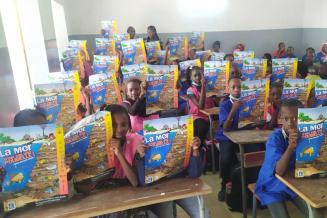
The campaign also educated the beneficiaries, especially the young learners, on the existence and the need to preserve the underwater cultural and historical heritage of Senegal. For example, researchers and historians can trace the sequence of historical events by studying the remains on the ocean floor, which constitute an important heritage to be known, understood, preserved, and transmitted to future generations.
For a long time, humans have occupied the coasts and have created close links with their marine environment. This interaction has left traces that are now mostly submerged and have become important heritage sites to be preserved. The elements of underwater cultural heritage are based on several events and aspects of the past: war, maritime traffic, civilizations, etc.
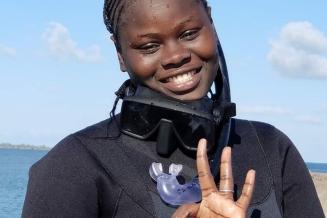
As a pioneer in underwater archaeological research in Africa, Khadidiatou Diop has participated in UNESCO trainings on underwater archaeology techniques as well as on research and management of underwater cultural heritage. Her dream is to build a maritime museum in Senegal so that future generations can better know and benefit from the rich underwater cultural heritage of her country. Ms. Diop is a shining example of Senegalese youth re-imagining - and rebuilding - a world where the sea is not a trash can.
- Interested in collaborating with the "Sea is not a trash can" initiative? Please contact dakar@unesco.org.
- More on UNESCO’s work in education for sustainable development.


